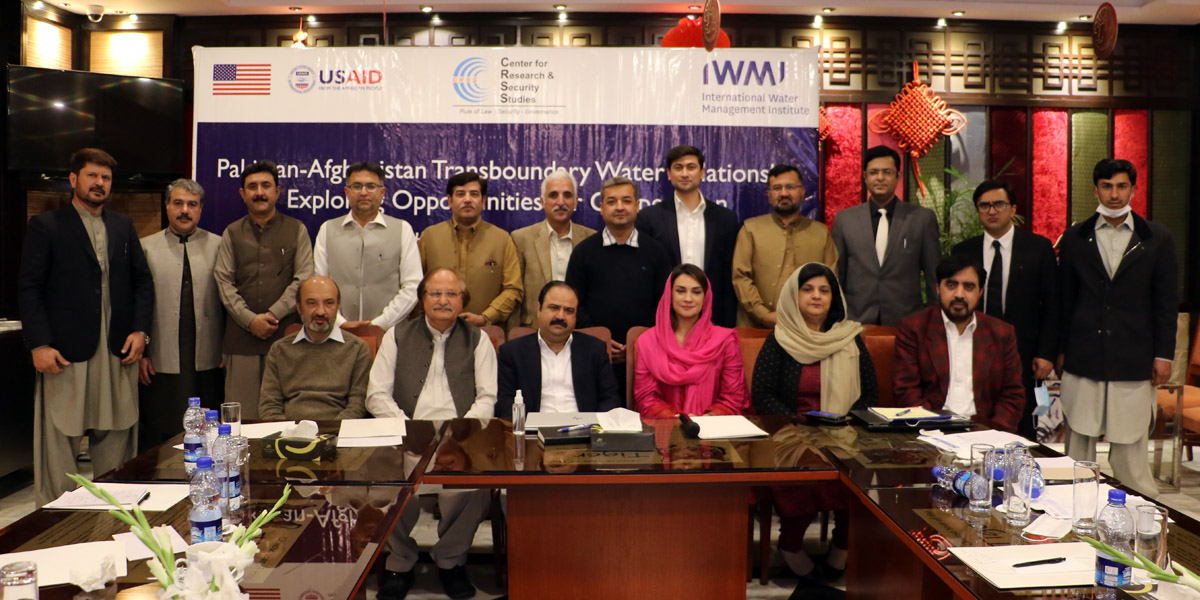Pakistan and Afghanistan share waters of nine big and small rivers, with millions of people on both sides depending on shared water resources, but it is really unfortunate that there is no mutually agreed mechanism such as a water treaty to regulate the matters of water sharing and joint management of shared water resources. To avert the future water crisis, it is really important and only underlines the need for policy intervention and more research on the issue.
These remarks were made by the member of Provincial Assembly of Khyber Pakhtunkhwa, Ms. Ayesha Bano, during the first round of dialogue series on Pakistan-Afghanistan Transboundary Water Relationship organized by the Center for Research and Security Studies (CRSS), in partnership with USAID and IWMI.
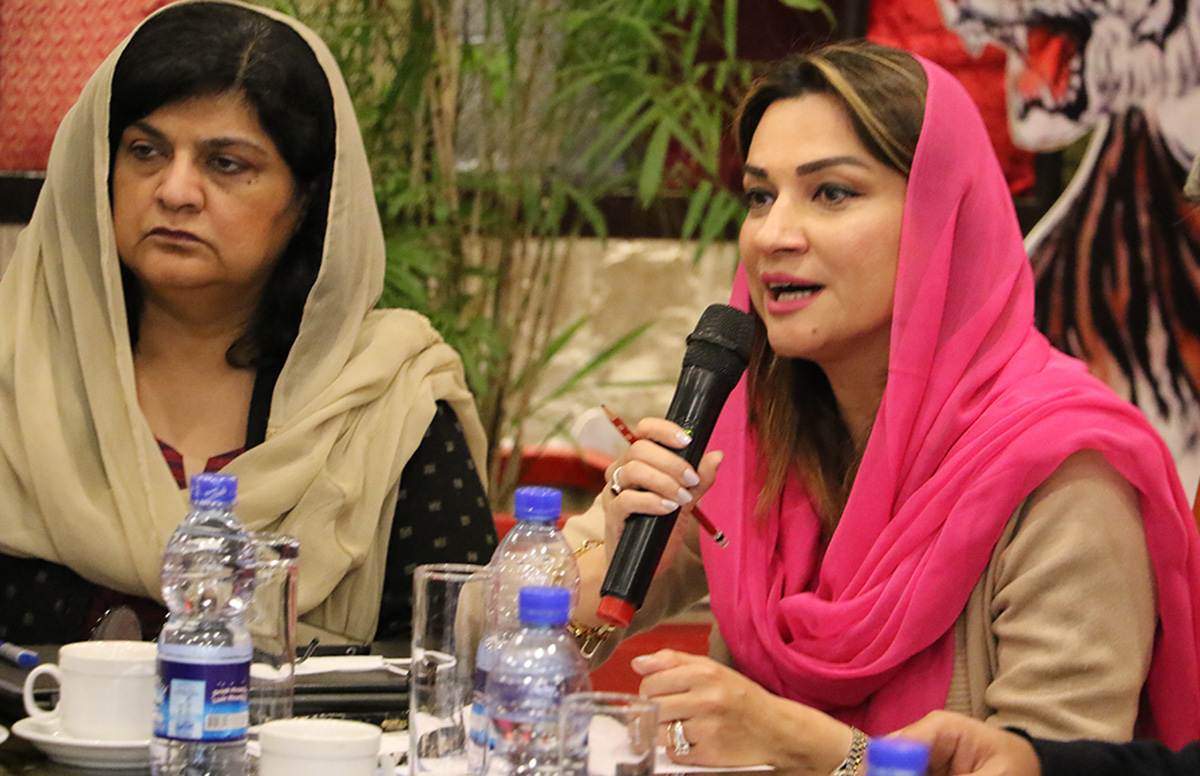
Ms. Ayesha Bano urged both countries for advances in their water relationship with a mutual benefit sharing approach as a core consideration. We should not let the political side of relationship affect the water side of it, and enhance water cooperation for accurate data and research around the water flows on both sides. She shared her plans to table a resolution in the KP assembly; urging the federal government to discuss the transboundary water sharing issues with Afghan government and maximize mutual benefit sharing.
She said that while expecting parliamentarians to speak on issues of communal and national concern in the upper and lower houses of parliament, we must first sensitize them to enable them for policy intervention. In this regard, the role of organizations working on these issues with research and advocacy is extremely critical. While appreciating Center for its efforts to generate traction around the transboundary water issues between Pakistan and Afghanistan, she noted that the dialogue on the issue was an eye opener for her and other parliamentarians also need to be involved.
Prof. Dr. Muhammad Zubair Khan, Chairman, Department of Water Resources Management, University of Agriculture, Peshawar, while speaking on the broad contours of Pak-Afghan transboundary water relationship, noted that with both countries serving as upper and lower riparian states at the same time not only heightens joint stakes for cooperation but also makes it an extremely significant area of their overall relationship.
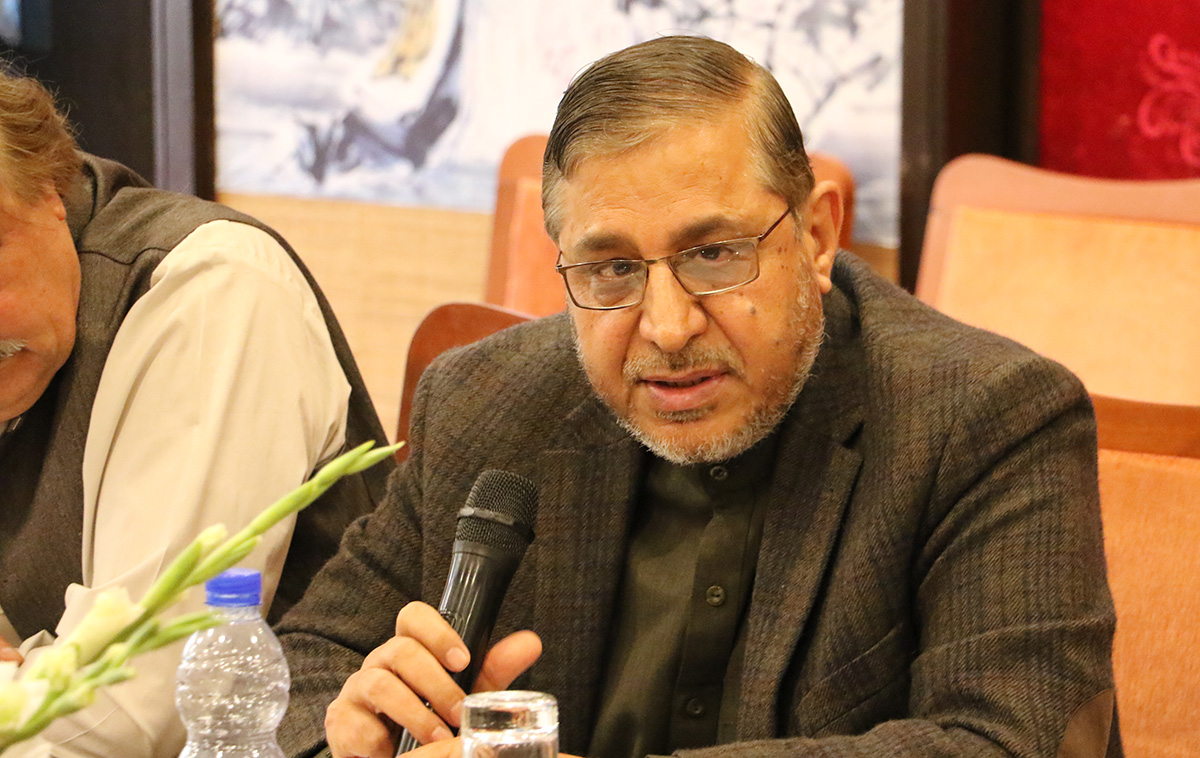
One of the motivators of Afghanistan’s water infrastructure development plans is how decades of war in the country has severely damaged its water and irrigation infrastructure. Declining water flows in Kabul River due to climate change and contribution of urban and industrial sewage are some of the issues that need joint management of this shared water resource.
Issues like lack of accurate data, lack or low level of water measurement capabilities around the transboundary rivers have a huge potential for misconceptions and mistrust. Also, the involvement of third party state actors and donors in Afghan water development projects without consulting co-riparian has the potential to drive trust deficit in the relationship.
In view of these issues, a transboundary water sharing agreement; a mechanism to regulate joint management shared water resources and water sharing matters, becomes worth considering and taking up between two sides. The technical contacts between two sides also need to increase at both official and unofficial communication channels.
There is a huge potential in the transboundary water relationship through cooperation for joint projects for capacity building, rehabilitation of the irrigation infrastructure, water pollution control, and research on the current and future potential of Kabul River.
Qaumi Watan Party (QWP) provincial Chairman Sikandar Hayat Khan Sherpao underscored to look up for opportunities in the challenges for cooperation over transboundary water resources.
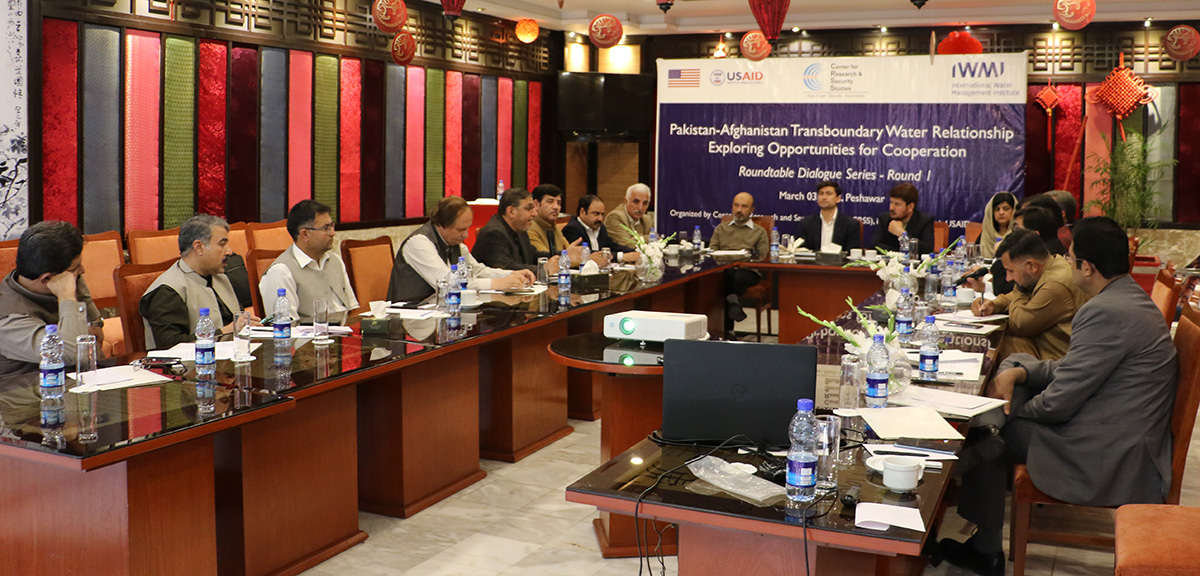
One of the most formidable transboundary water issues is lack of data as accurate data has utilization not only for the transboundary matters but also domestically, for better water management at home. Besides looking at the issues of water management through a transboundary lens, treaty or cooperation, we should also develop our own comprehensive strategy for better water storage mechanisms and capacity, irrigation patterns and systems to be developed to avert any future crises. The system of our water management over time needs to be revised to respond to changing public and climatic needs. Unfortunately, the issue lacks the focus it deserves in the first place and we need healthy debate to generate actionable policy suggestions, awareness and underscore its importance.
Addressing trust deficit in the relationship is extremely important as the agreements or treaty will only take the cooperation so far in the presence of distrust. While treaty is important, it must only be the byproduct of series of arrangements that should converge into it including dialogue, research, data, trust building between actors at different levels of the society.
Engr Mohammad Naeem Khan former secretary, KP irrigation department, noted that Pakistan’s water storage capacity comparing to the international average of 40% is quite low and needs to improve from the current 10%. Pakistan’s National Water Policy 2018 was a good development and needs to be followed up and implemented in letter and spirit for serious gains.
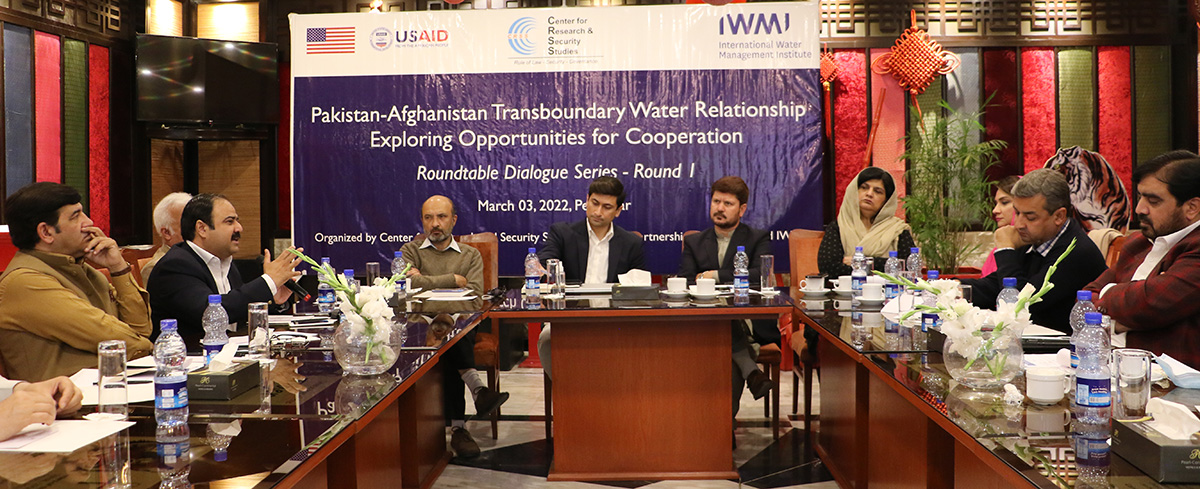
Both countries should cooperate to improve of health of Kabul River basin and undertake efforts to improve the water quality of the river i.e joint management given the joint dependence.
Engr Abdul Wali Khan Yousafzay, Retired Superintending Engineer, Irrigation Department, Peshawar, noted that besides water cooperation on the issues mutually inclusive to both sides, the water flows to Pakistan side also need to be utilized efficiently.
Mr. Muhammad Nawaz, Development Specialist – Water Resources Management, Office of Economic Growth and Agriculture, USAID, noted that transboundary water is a common resource and crosses climatic, hydrological, political and social and cultural boundaries. With 276 transboundary rivers around the world gives us several best practices that can be considered to improve cooperation between Pakistan and Afghanistan.
Mr. Malik Mustafa, Team Leader, Ulasi Taroon CRSS Another iteration of its expertise in multitrack diplomacy; building on its experience to generate dialogue of the contentious issues between Pakistan and Afghanistan.
The event was participated by members of academia, media, legislature, KP chamber, lawyers and waters experts.

